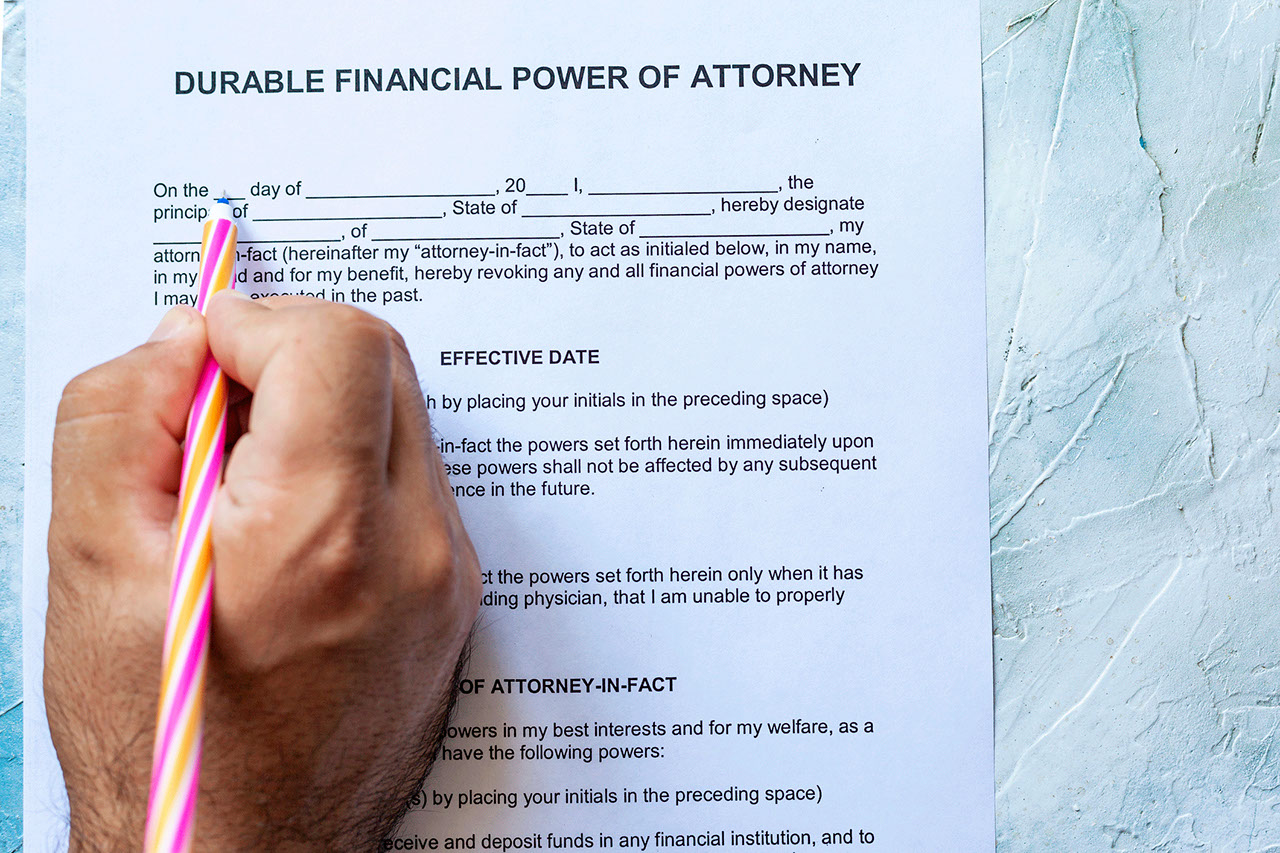What Is a Durable Power of Attorney?

If you are dealing with serious health problems, having a durable power of attorney can authorize someone else to handle your finances or healthcare for you.
If you are older or dealing with significant health issues, it is a good idea to ask someone to step in for you, if needed, and complete the legal paperwork giving that person the authority to handle finances and medical decisions on your behalf. It’s always possible to revoke a power of attorney agreement, but you will have to do so in writing.
If you are taking care of older or disabled people, ask them to complete the same paperwork. Standard documents signed in advance will avoid delays and confusion.
YOU MIGHT ALSO LIKE: Our Senior Care section
What is a durable power of attorney?
A general durable power of attorney, or POA, authorizes you to act in a wide range of tasks for someone else and remains in effect if he or she is incapacitated. The POA may take effect immediately or become effective only if the person is incapacitated.
The appointed person is known as an “agent.” As an agent you can:
- Buy and sell property
- Manage bank accounts, bills, and investments
- File tax returns
- Apply for benefits
You can find DIY durable power of attorney forms online. Be sure you find the form for your state, as they vary. It’s best, however, if the person you are caring for speaks with an attorney who can recommend the documents that will work best for a particular situation. To get free legal help, check with the Legal Services Corporation.
Many states require powers of attorney to be notarized. It’s also standard practice to pay a small fee to record it with your county.
What is a durable power of attorney for healthcare?
This document authorizes you to make choices about healthcare for someone else who is unconscious or otherwise unable to choose. It is not the same as an advance directive or a living will, both of which allow people to detail instructions about care if they are at risk of dying or at the end of their life.
What are the advantages of having a POA?
If you skip this task and can no longer manage your own finances or healthcare, a court will appoint a guardian or conservator, often a professional, which is very expensive.
If you try to manage your own financial affairs beyond your ability, you may make expensive mistakes and fail to meet important deadlines.
You also may not get necessary medical care if you can’t stay on top of things.
You are more likely to get honest and helpful service from people you hire if they know that someone is looking out for you. The best protection against elder abuse and fraud is to have a good relationship with someone you trust who is tracking your medical care and finances.
At the time you complete your documents, you can talk to family members and address their questions and emotions. This helps avoid conflicts within families when you are incapacitated, which can cause delays and stress and may be expensive.
What can’t you do with a POA?
There are some tasks a person cannot authorize someone else to do. A POA does not allow someone else to:
- Make, amend, or revoke a will
- Contract a marriage in most states, although a handful of states allow it
- Vote (but the agent may request a ballot on behalf of the principal)
How to use a power of attorney
Bring a certified copy of the document with you when you conduct business or communicate with healthcare providers. If you're signing documents as power of attorney, use your name and indicate that you're signing as power of attorney. Ask about the state’s established format before you sign.
What if you suspect abuse?
If you suspect that someone one is being stolen from or abused by the person with his power of attorney, consult an elder care lawyer. If you no longer trust the person to whom you have given POA, or you want to transfer that authority to someone else, speak to a lawyer about formally removing that power in writing.
Updated:
March 18, 2022
Reviewed By:
Janet O’Dell, RN